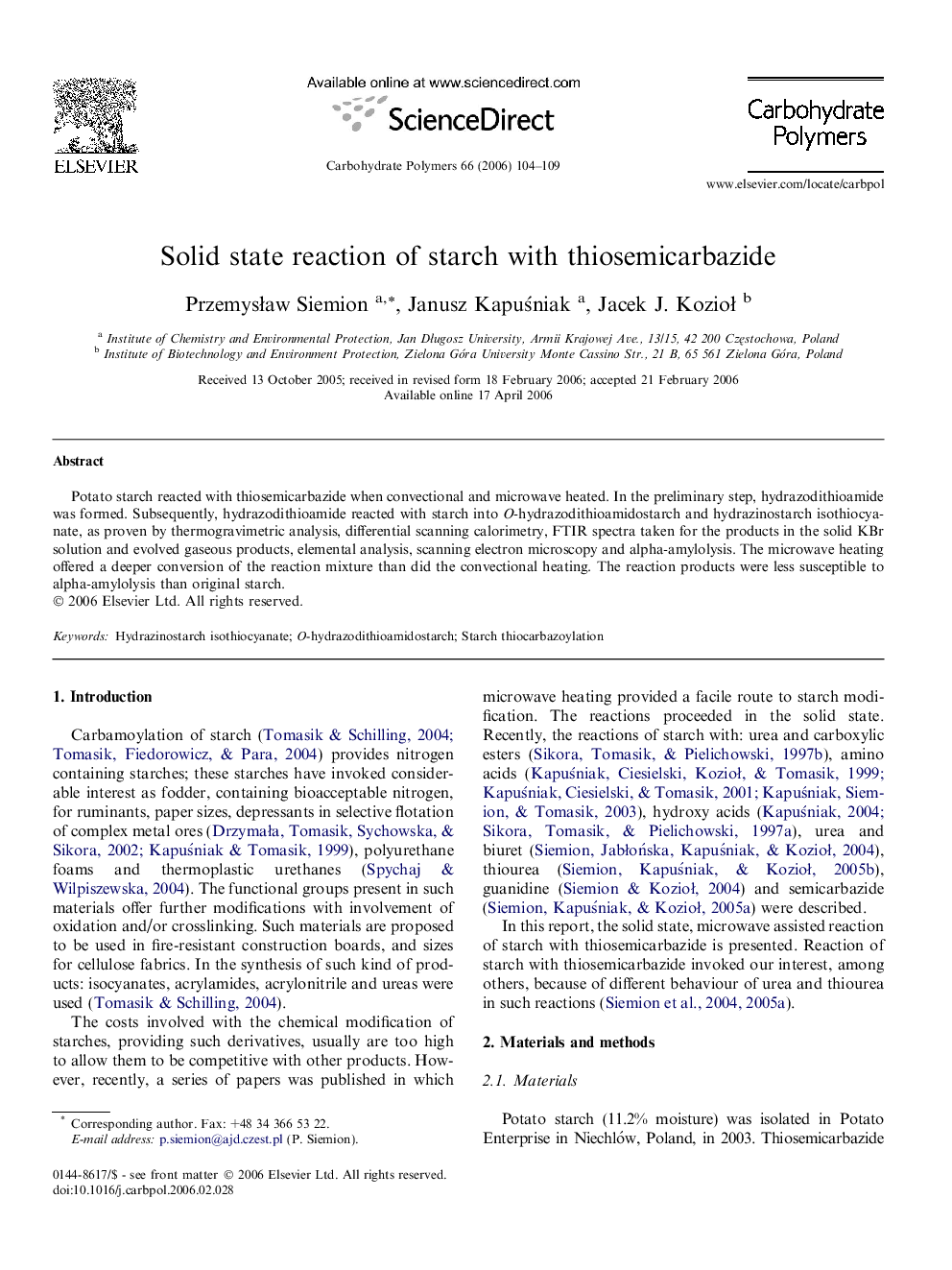| Article ID | Journal | Published Year | Pages | File Type |
|---|---|---|---|---|
| 1380258 | Carbohydrate Polymers | 2006 | 6 Pages |
Abstract
Potato starch reacted with thiosemicarbazide when convectional and microwave heated. In the preliminary step, hydrazodithioamide was formed. Subsequently, hydrazodithioamide reacted with starch into O-hydrazodithioamidostarch and hydrazinostarch isothiocyanate, as proven by thermogravimetric analysis, differential scanning calorimetry, FTIR spectra taken for the products in the solid KBr solution and evolved gaseous products, elemental analysis, scanning electron microscopy and alpha-amylolysis. The microwave heating offered a deeper conversion of the reaction mixture than did the convectional heating. The reaction products were less susceptible to alpha-amylolysis than original starch.
Related Topics
Physical Sciences and Engineering
Chemistry
Organic Chemistry
Authors
Przemysław Siemion, Janusz Kapuśniak, Jacek J. Kozioł,
